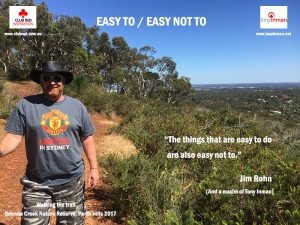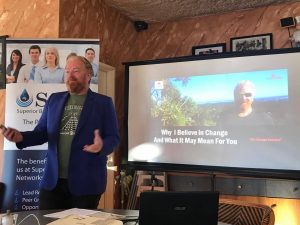
Embrace Change or Fear it?
Some people love to embrace change. The very thought of it drives them on in life and excites them. Others, less so.
Are you a person who doesn’t like change?
If so, have you ever thought about why that might be?
The Reality of Change
Love it or loathe it, change is inevitable, in all aspects of your life. What’s more, the speed at which things are changing in our modern world is happening faster than ever. It’s not even a new concept.
Here are two quotes from a Greek philosopher, Heraclitus, who lived from 0535 to 0475BCE.
“No man ever steps in the same river twice, for it’s not the same river and he’s not the same man.”
And
“The only thing that is constant is change.”
Heraclitus
Here’s an interesting twist though – the tools and gadgets are changing at a lightning pace. New inventions become obsolete almost before they hit the retail stores, as our consumer-driven world relentlessly demands newer and better. Yet people, are fundamentally the same as they’ve always been.
People still bristle with emotions, just as they did in the days of Heraclitus. Remember the seven deadly sins?
-

Did ’embracing change’ include eating apples? Gluttony
- Lust
- Greed / avarice
- Pride / hubris
- Sorrow/despair /despondency
- Vanity
- Sloth / laziness
Just look at the leaders of the world, such as Donald Trump and Kim Jong-un if you want any proof of our lack of advancement.
In that sense we realise that our very being is essentially the same as it’s always been. It’s hard to embrace change when our emotional makeup has been passed down through the centuries.
Another Greek philosopher, Epicurus, who lived from 341 to 270 BCE, gave rise to our motivation being based on avoiding pain and desiring pleasure:
“Pleasure is the first good. It is the beginning of every choice and every aversion. It is the absence of pain in the body and troubles in the soul.”
Epicurus
The Myths of Change

Mahatma Gandhi
Many of our embedded notions surrounding change suggest that it is unattainable for humans, e.g.
‘A leopard never changes his spots’.
You may know of some ‘bad people’ whom you believe will always be bad, no matter what you do to help them change. Conversely, some people are thought to be too good to others, often to their own detriment.
Yet, if you go back to Heraclitus’s river quote, you realise that even the bad person is impacted in some way by the changing circumstances or consequences of their actions.
There are many documented cases of ‘bad people’ who have evolved, grown, become more humane, and who have done ‘good’ in the community.
Another great myth is that successful people cannot be happy. Historically, we have a lot of myths around money and wealth, especially those cited by the poor, that rich people are ruthless and unhappy people, as a justification for not doing anything about their own state of poverty.
A common misquote from the bible has been that ‘Money is the root of all evil’, when the correct quote was that ‘The love of money is the root of all evil.’ The shift of meaning between the two is a chasm. The reality is that it is possible to be successful, yet not put money before all else, and to use that money as a force for good, such as building hospitals and schools or feeding the homeless.

Fear of Change
So, back to why you may fear change… even the thought of it may bring up such foes as fear of failure; fear of success; fear of rejection; fear of being ostracised; fear of embarrassment or even worse, humiliation.
Don’t think that I’m simply giving you a list of excuses here as to why you don’t have to change – far from it.
Change is often about taking small, manageable steps. The problem with that was summed up beautifully by one of my favourite coaches, Jim Rohn, who is sadly no longer with us:
“The things that are easy to do are also easy not to.”
Jim Rohn
The Change Process
The first step to success in change is to gain clarity about the gap between your present state and your desired state, i.e. where you are now vs. where you wish to be.
The second is to identify the obstacles to progress, or that which is stopping you.
The third is to develop a strategy to plan the work to move forwards.
The fourth is to take action and work the plan.

How to Embrace Change Effectively
It sounds easy doesn’t it? Clearly, it’s not always so easy, which is one of the reasons people hire people like me, coaches, who are trained in helping people to embrace change and achieve it.
One reason they hire me to help them embrace change is that it’s easier for someone who’s not emotionally entangled in the situation, to see things more clearly. Another reason is that I’m trained to observe the complexities and pick up on the unseen blockages and clues as to why progress is not happening.
I’m also trained and experienced in how to help people through these problems and develop effective strategies. I bring that extra insight, followed by the level of accountability that you may need for the desired change to occur.
“There can be no hope without fear, and no fear without hope.”
Baruch Spinoza

If you’d like your next year’s goals and the year after’s goals to be different from, and more exciting than, your last year’s goals, why not give me a call for a chat. There’s no obligation and no unexpected fees, but if you’d like to increase your chances of effective change, please contact me via the details below.
Tony Inman – ‘The Change Catalyst’
Mob. 0419 860 382

